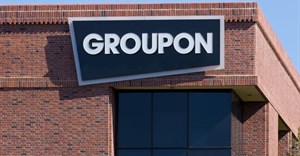
Reviewing group buying success
Group buying, a fairly new-concept introduced into US markets a few years ago, has proved to be a large industry with the most successful company being Groupon. This success has led to it going public on the US market with the highest IPO opening for a tech company since Google.
Despite its penetration in the tech market and its leading position in the e-commerce market, group buying is sometimes negatively perceived, with critical accounts from vendors still hitting the media. Some businesses still exhibit a degree of apprehension towards the massive marketing opportunity that group buying provides.
Some cases have led businesses to question the cost versus marketing benefit of the group-buying model, and whether the large discount placed on group deals makes the substantial marketing that is provided irrelevant. Smaller businesses especially are apprehensive about the possibility that they might be unable to deal with the scale of new business that group buying provides - considering the often-staggering consumer reach of these companies databases, which may attract more customers than small companies have infrastructure to cope with.
This coincides with the assumption that larger companies who wish to garner business from existing customers and reach new ones may be better suited to the model, as companies with greater production capacity could meet any increased influx more easily than a small start-up wishing to make a name. However, Groupon SA management says that the model has been able to provide just such a service for both start-ups and smaller companies.
Cost-effective
Joint CEO of Groupon SA, Daniel Guasco, says that the company approaches each business (whether it is smaller or larger businesses) with a tailored, individualised approach, based on market expertise and research from across the globe.
"Compared to traditional media, group-buying is the most cost-effective and risk-free form of marketing available. However, it is up to you as the merchant whether you can handle the service; we put you in the limelight in front of a large amount of new customers - you are exposed to our entire database but only pay commission on the actual customers we acquire for you. Once they walk in the door, it's up to the vendor to provide effective service, but we try and ensure that what you are offering is suitable to your specific service and abilities," he says.
The service industry is more prone to hiccups with group buying, as often they are not as able to cope with the demand as well as product-based services can, and service suffers as a result.
Success stories
Roy De Gouveia, of Cape Town restaurant Wasabi, says that taking part in a group buying deal paid tremendous dividends - it was simply necessary to plan and prepare accordingly. "We worked out the capacity that we could handle for a period of time, and created an offering based around that. As a restaurant, especially with new competition opening on such a regular basis, one has to stay ahead of the game or you will fall flat. The only way for a restaurant to stay alive is to always look ahead to stay above the rest, and online marketing is how Wasabi achieved that."
Guasco said that the idea of using a daily deals site to turn a quick profit was the biggest misconception in the industry. "It has to be looked at as an acquisition tool with a view towards retention. Group buying deals need to be accompanied by proper positioning during the deal and proper levels of service after the deal, but the responsibility for customer retention lies with the company offering the deal, rather than the group buying service. Its value proposition is new customers through the door and that we do very well. We bring large quantities of new customers through the door, the businesses that treat customers well, will get repeat customers and to us that's a successful deal."
Business Development and Systems Manager at Mango Airlines, Glynis Bezuidenhout, agrees with him and praised the consumer opt-in function of its service. "Media consumption of products such as Groupon is purpose driven, inspired by the public seeking a deal. It is a very different platform to channels such as print media - they are consumed in different manners with consumer intent and, when engaging with the product, also completely different."
Operating as a larger corporation, Bezuidenhout says that its engagement proved seamless. "Large retail, whether online or in the physical world, often take a one-size-fits-all approach but we were pleasantly surprised when the service did not push a square peg through a round hole, but rather took the time to understand both our business and our needs. I believe that the site's utility lies in being able to service any size company, dependent purely on the desirability of one's product or service."
Percentage cut worth the benefit
Group buying websites continue to prosper, despite critics' suggestions that some business managers choose to run a deal once, thus reaching new customers, but then because many businesses are not willing to pay huge commissions on discounted sales, leave it at that.
Elitza Giorgio, of Italian Furniture and Investment Design store Euro Casa, said that in her opinion the percentage cut from a group buying deal was definitely worth the benefits.
The company serves as an interesting example, owing to the company's status as both service and product deliverer. "We were in the position of having customers more interested in our furniture than our designing, but as soon as we offered the deal, people became more aware and interested. As a result, the company made more than one million Rand from the deal it ran through Groupon. I believe that at the end of the day you have to make group-buying work for you. It is up to you as the service provider to ensure that you offer a strong product that makes customers return when the discount is no longer the draw-card."
With the increase in e-commerce business and the realisation by 'traditional' businesses that they need to move into the online sphere to survive, group buying may offer the most effective alternative with the least compromise towards achieving this end.

















